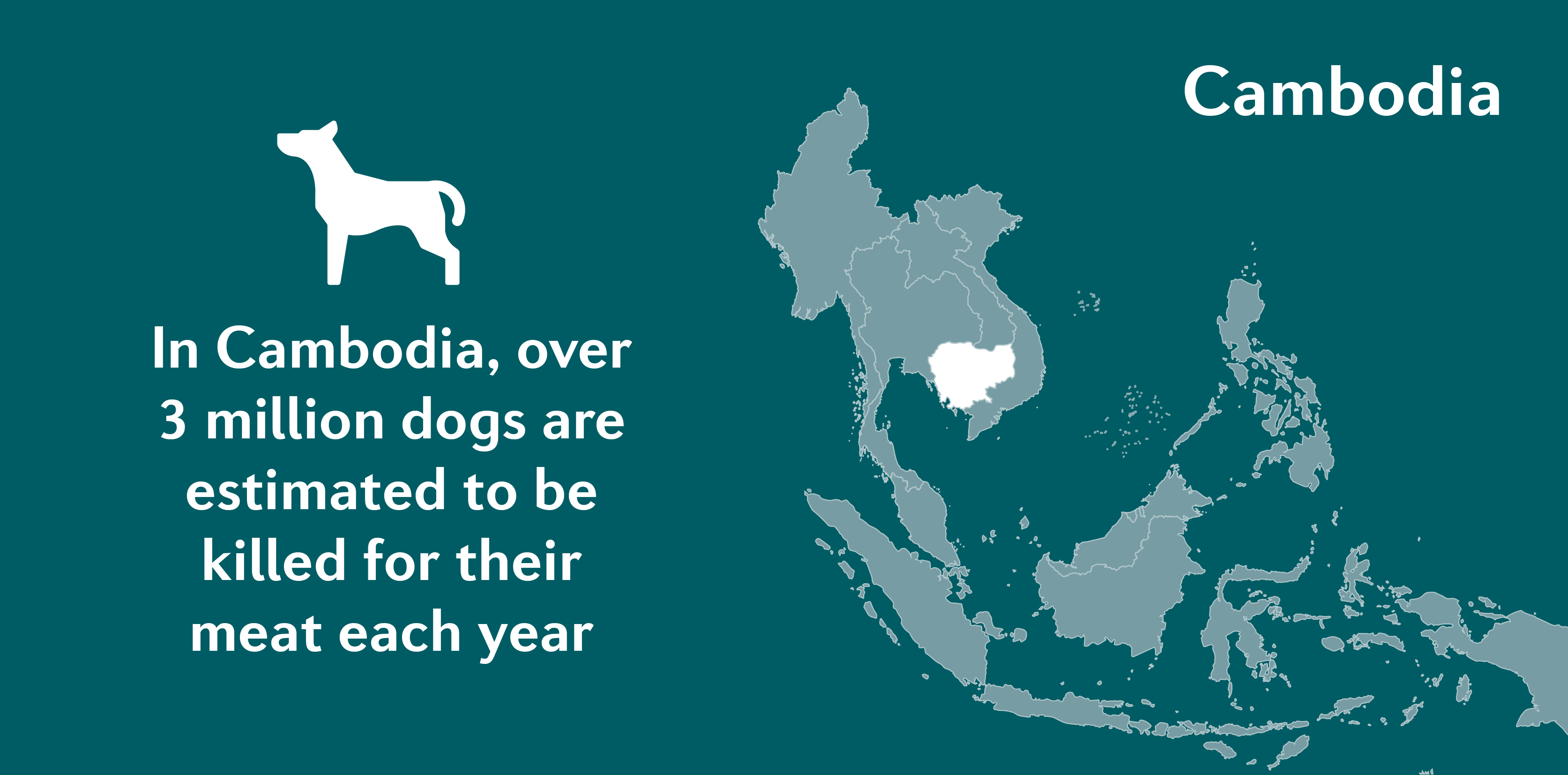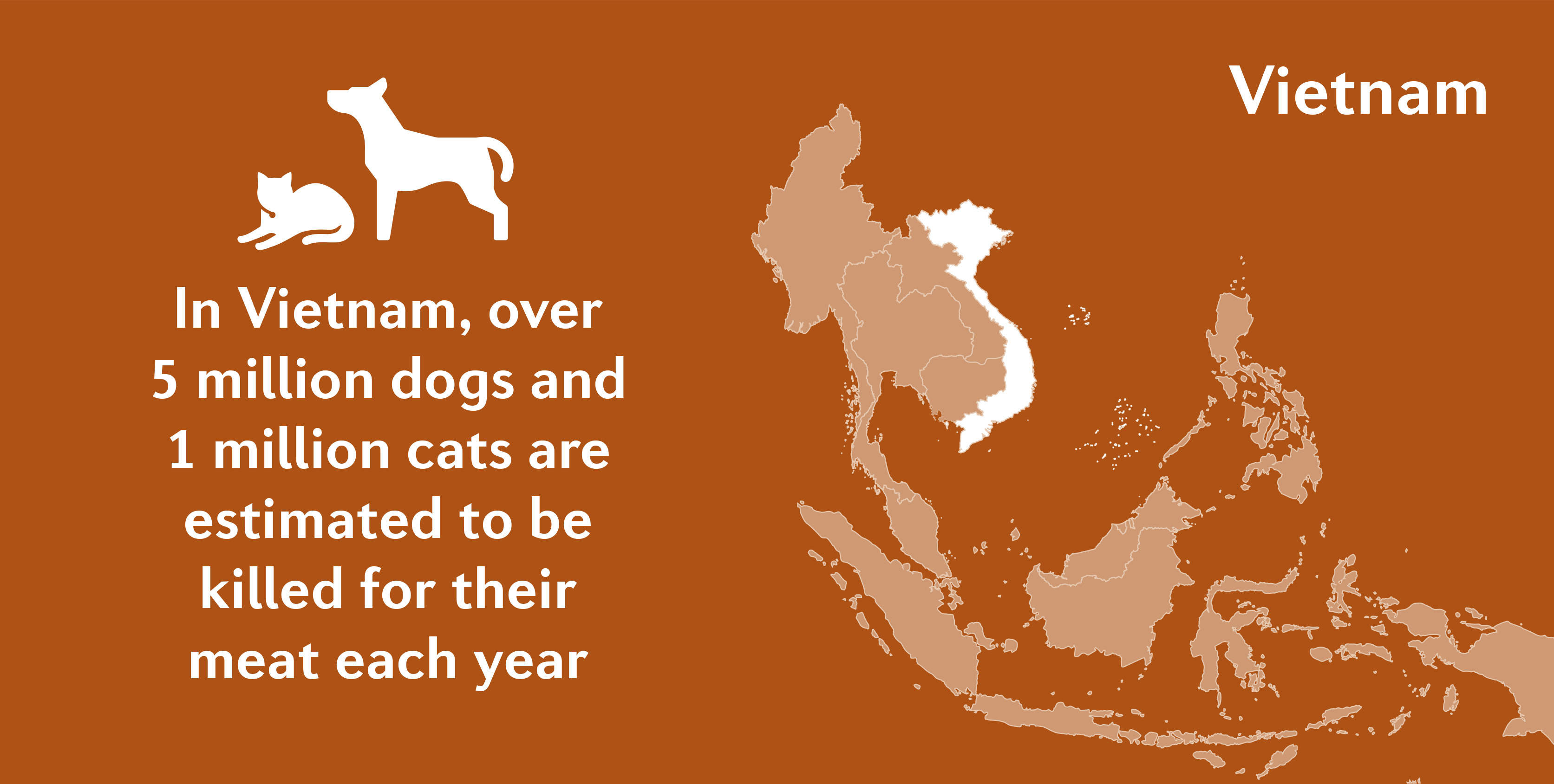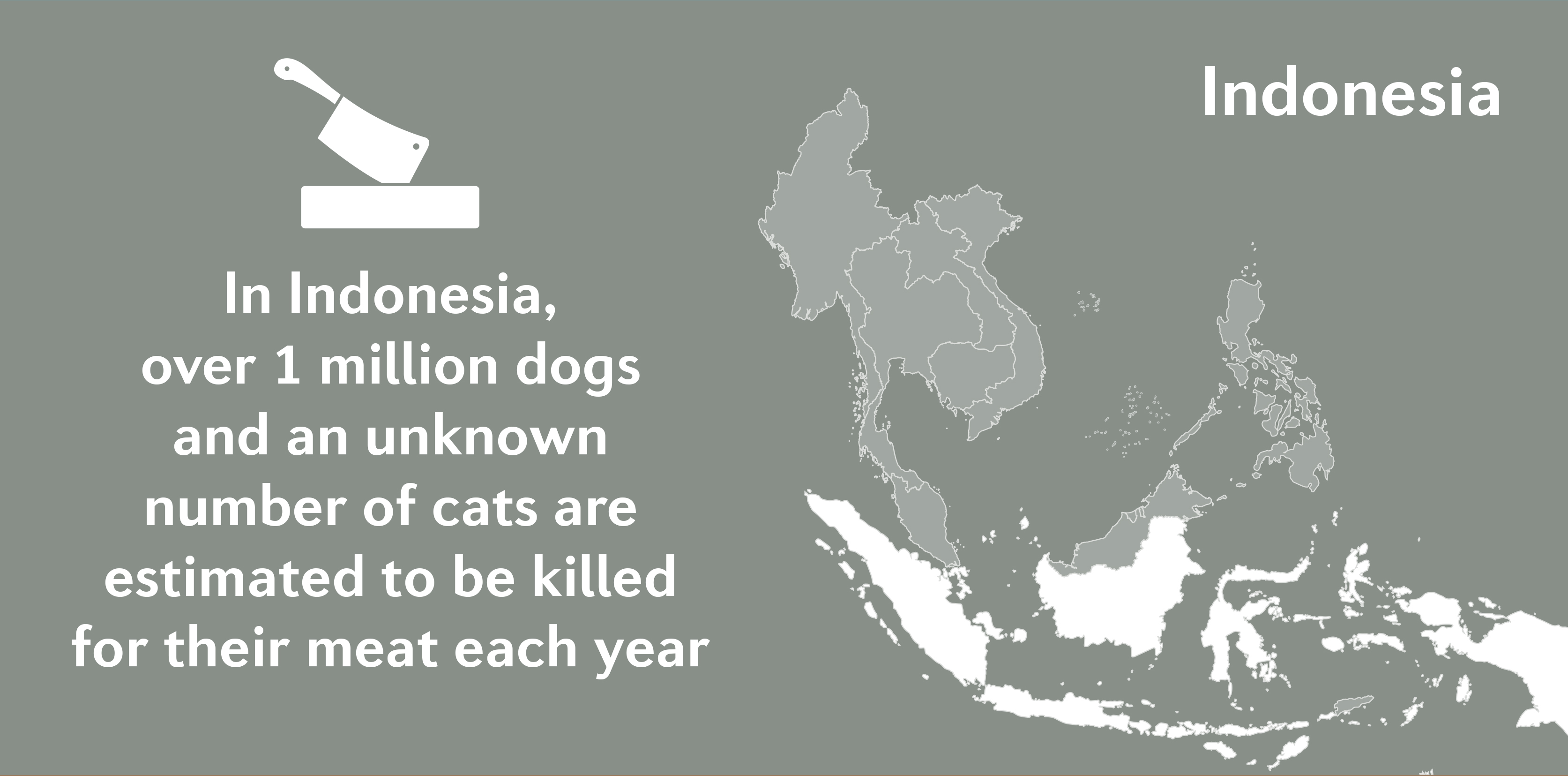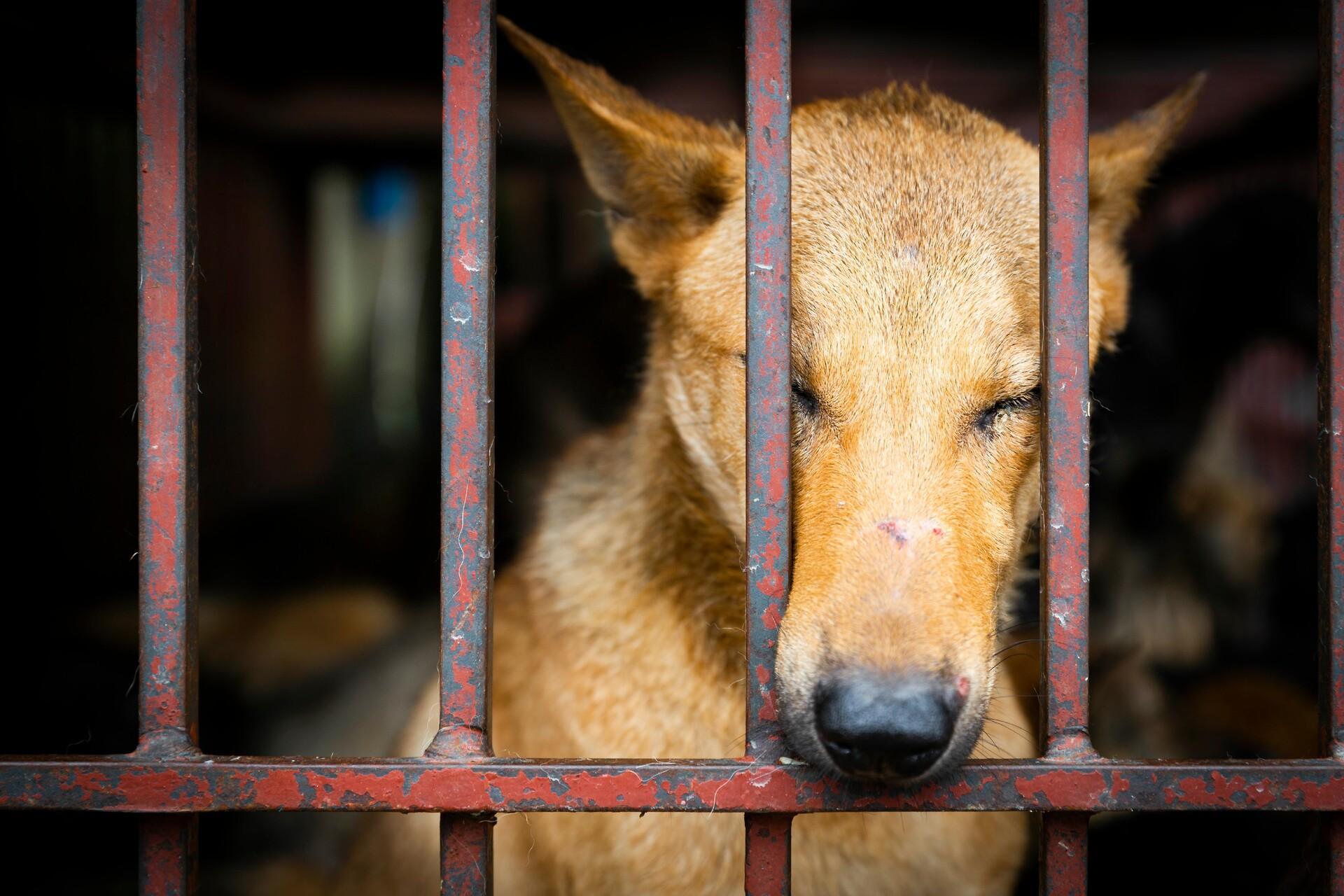
Where the Cruelty Happens
FOUR PAWS is working to end the dog and cat meat trade in several countries in Southeast Asia
Over the past several years, FOUR PAWS has expanded its reach into Southeast Asia, which now gives us the opportunity to take up the fight against the horrendous dog and cat meat trade. Alongside our network of local charity partners in the region, we have the chance to make a change for the animals, to stop the brutal dog and cat meat trade in Cambodia, Vietnam and Indonesia.
Here is an overview of the individual countries' situation regarding dog and cat meat.
Cambodia

Dog meat in Cambodia is referred to as ‘special meat’ and is often consumed with beer or rice wine on social occasions. Motivations for dog meat consumption vary – besides consumption of dog and cat meat on social occasions, many believe that dog meat has medicinal properties, from boosting virility to keeping the body warm during Cambodia’s ‘colder’ months.
In Cambodia, you can avoid dog meat by looking out on the menus for items referred to as “Special meat – “សាច់ពិសេស”, which is usually dog meat. This includes “ការីសាច់ឆ្កែ” (dog meat curry); “សាច់អាំង” (BBQ dog meat) and “សម្លរម្ជូរគ្រឿង” (sour soup with dog meat).
Vietnam

In areas of Vietnam where cat meat consumption is prevalent, diners report that they most commonly eat it at the lunar month for good luck. In Vietnam, dog meat has been linked to regional outbreaks of trichinosis, cholera and rabies in humans. While the dog meat trade is often defended as ‘tradition’, the reality is that there are significant health and societal impacts associated with the trade and these are becoming of ever-growing concern within Vietnam and internationally.
In Vietnam, you can avoid dog and cat meat by looking out on the menus for items referred to as “thịt chó”, “thịt mèo” or “thit cay” (cat meat). "Chó hấp” (steamed dog meat), “rựa mận” (dog meat with galangal, shrimp sauce, fermented rice), and “chó nướng” (baked dog meat).
Indonesia

In Indonesia, according to estimates over one million dogs and hundreds of thousands of cats are traded for their meat every year. Rabies positive dogs are being moved to supply highly-populated cities that are often dog meat eating 'hot spots' throughout the nation, including those areas that have worked to secure “rabies-free” status, such as the capital city of Jakarta. The World Health Organization has explicitly highlighted the dog meat trade as a contributing factor to the spread of rabies in Indonesia – a deadly disease that has a devastating impact on human and animal health.
Although dog meat is only consumed by a minority of Indonesians – estimated at less than 7% nationwide and < 1% in Jakarta – and only a tiny fraction of society is reliant on it as a primary source of income, the trade threatens the health and safety of the entire nation. If Indonesia is to achieve its goal to eliminate rabies by 2020, urgent action is required by the government and all sectors of society.
FOUR PAWS’ is a leading member of the Dog Meat Free Indonesia (DMFI) coalition. DMFI works on various initiatives to end the dog meat trade in Indonesia, including campaigning, researching and investigating the situation and lobbying the government and local decision-makers for change. In Indonesia, FOUR PAWS is also in the process of signing a partnership agreement with the charity Jakarta Animal Aid Network (JAAN) to support the creation of an online animal welfare education platform. This will focus on educating school children on responsible pet ownership, stray animal care and the dangers of the dogs meat trade. FOUR PAWS also run a Stray Animal Care (SAC) programme in Balikpapan with the local group, Pro Natura to neuter stray and community cats and encourage responsible pet ownership.

